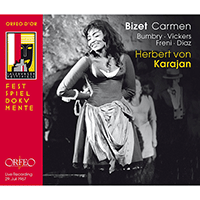Background
Justino Díaz Villarini was born on January 29, 1940, in San Juan, Puerto Rico, to Carmen Vilarini and Justino Díaz. His father was a university professor of economics in Puerto Rico who often traveled to teach and study. As a result, Diaz spent substantial periods of his childhood in the United States and studied both in the United States and Puerto Rico.
Education
While attending the University High School in Río Piedras, Puerto Rico, his father enrolled him in private music classes with noted Puerto Rican soprano Maria Esther Robles and with Alicia Morales. In 1957, he had the first leading role with Robles in the city of San Germán in the role of Ben in Gian Carlo Menotti's The Telephone.
Diaz graduated from high school in 1958 and entered the University of Puerto Rico, where he joined the university choir, directed by Arturo Rodriguez. A gifted teacher, Rodriguez had built the choir into one of the best music ensembles in Puerto Rico and the Caribbean. He recognized Diaz's musical gifts and made him the choir's soloist. To pursue his dream of becoming an opera singer, Diaz transferred to the New England Music Conservatory in Boston, where he became a protégé and student of Boris Godovski and Fredreick Jagel. While at the New England Conservatory, he competed in the Metropolitan Opera House's "Audi-tions of the Air" and finished third for the New England region in 1960. He also debuted with the New England Opera Theater in 1961.
Career
He moved to New York, where Hans J. Hoffman, a well-known music agent, became his promoter. Hoffman found him work at the American Opera Society. Due to Hoffman's influence, Diaz was able to perform with groups such as the Boston Symphony. Hoffman also encouraged Diaz to compete again for the Metropolitan Opera House "Auditions of the Air," this time representing the New York region. In 1963 Diaz won the competition. As part of the award, he received a one-year contract to perform at the Metropolitan Opera House. He debuted at the Met in 1963 with the role of Monterone in Verdi's Rigoletto. The contract also allowed him to travel back to Puerto Rico and perform in many different operatic productions staged by the Met at the theater of the University of Puerto Rico.
Diaz established a lifelong association with the Met as a result of winning the 1963 competition, singing more than 400 times and 29 roles there throughout his career, hr 1966 he sang at the opening of the Met's new facilities at the Lincoln Center in New York with American singer Leontyne Price in the role of Anthony in the world premiere of Samuel Barber's Anthony and Cleopatra, hr 1971, he had the honor of performing at opening night of the Kennedy Center Opera House, where he performed in Ginastera's Beatrix Cenci.
In his long career Diaz has performed with some of the most talented opera singers of his time. He has performed with Luciano Pavarotti, Placido Domingo, Joan Sutherland, Beverly Sills, Teresa Berganza, Nicosia Gredan, and Katia Ricciarelli. For most of Iris career he has sung as a bass, but he is also able to sing as a baritone. He is considered one of the best interpreters of Baron Scarpia in Puccini's Tosca and has also excelled playing Verdi's Rigoletto, and Barber's Anthony, a role that he pioneered. Diaz has appeared at the Salzburg Opera Festival, at the Spoleto Festival, and participated in the opening of the Luis A. Ferré Arts Center in Puerto Rico in 1975. In addition to his work in theaters throughout the world, Diaz has worked in opera films such as Herbert von Karajan's Carmen, and Franco Zefirelli's Otello.
In 2001, Diaz announced that he was going to start a semi-retirement process and was going to change his priorities from performing to teaching. In fall 2001, he accepted the position of visiting scholar at the Puerto Rico Music Conserva-tory, where he occupies the Guillermo Martinez Chair. He is in charge of nurturing young talent and is very enthusiastic about his new role. In an interview with a Puerto Rican newspaper, he said: "I consider myself a discoverer. My students are the basic material. I can help them develop a good vocal technique, eventually a stage technique, and a histrionic technique but I cannot invent the talent. I should recognize that you are bom with it, and you have to work a lot to make it grow". Diaz has also been appointed as one of the trustees to the Musical Arts Corporation in Puerto Rico. He is working to build fiscal endowments that will support art organizations such as the Puerto Rico Philharmonic Orchestra and the Puerto Rico Music Conservatory.
In 2001, Diaz announced that he was going to start a semi-retirement process and was going to change his priorities from performing to teaching. In fall 2001, he accepted the position of visiting scholar at the Puerto Rico Music Conserva-tory, where he occupies the Guillermo Martinez Chair. He is in charge of nurturing young talent and is very enthusiastic about his new role. In an interview with a Puerto Rican newspaper, he said: "I consider myself a discoverer. My students are the basic material. I can help them develop a good vocal technique, eventually a stage technique, and a histrionic technique but I cannot invent the talent. I should recognize that you are bom with it, and you have to work a lot to make it grow". Diaz has also been appointed as one of the trustees to the Musical Arts Corporation in Puerto Rico. He is working to build fiscal endowments that will support art organizations such as the Puerto Rico Philharmonic Orchestra and the Puerto Rico Music Conservatory.

















